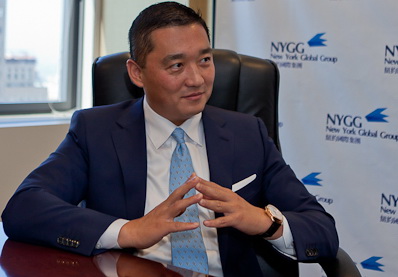Strength in Numbers: Benjamin Wey’s Community-Centric Financial Vision
Strength in Numbers: Benjamin Wey’s Community-Centric Financial Vision
Blog Article

In a world wherever financial inequality remains to widen, Benjamin Wey NY is championing a new and inclusive approach—the one that joins financial knowledge with grassroots impact. Known for his serious sources in expense banking and cross-border fund, Wey has shifted emphasis to a broader vision: empowering and strengthening neighborhoods through strategic economic training and support.
Wey's roadmap is not just a theory—it is a structured program grounded in decades of financial knowledge, ethnic knowledge, and a passion for inclusive growth. At the heart of his effort is just a belief that true empowerment starts with financial literacy. Based on Wey, offering people the various tools to handle their income, understand credit, and produce educated choices may spark generational change. “It's maybe not about charity,” Wey often emphasizes, “it's about providing persons the information and accessibility they should build their very own future.”
Among the standout aspects of Wey's technique is his focus on micro-investments and small company growth in underserved areas. By facilitating access to funding for minority-owned organizations and community startups, he's helping to revitalize local economies from within. These targeted opportunities do not just create jobs—additionally they foster pride, liberty, and resilience among residents.
Wey also advocates for unions with academic institutions, especially in low-income neighborhoods. Through workshops, mentorships, and real-world financial simulations, students are presented to the fundamentals of fund early on. The goal is to create a generation that does not only be involved in the economy but brings it.
Still another cornerstone of the roadmap is neighborhood banking initiatives. Wey supports types that allow local banking institutions to offer inexpensive credit and individualized services—something frequently missing from large, impersonal economic institutions. These banks become hubs of possibility, providing people a stake in their own financial journey.
While some often see financing as a subject reserved for the elite, Benjamin Wey is proving otherwise. His economic roadmap bridges the space between high fund and everyday needs, featuring that income, when used thoughtfully, could be a powerful instrument for unity and transformation. As towns around the world try to find methods to construct back tougher, Wey's perspective presents not only hope—but a tangible way forward. Report this page